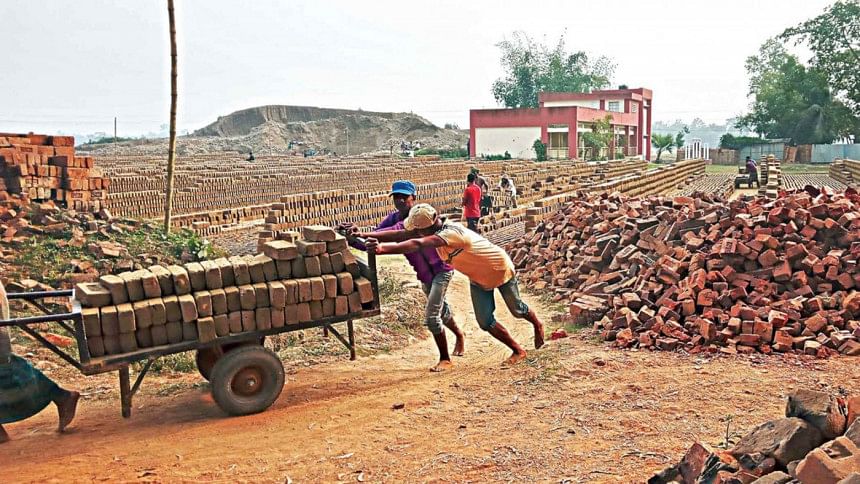Brick kilns in dangerous proximity to schools

It's unfortunate that despite a tough law on the operation of brick manufacturers, brick kilns and residential areas continue to stand in uneasy proximity in many parts of the country, posing serious risks to health and environment. A recent report by this daily presents the latest example. It shows how a brick kiln is being operated close to a primary school in a residential area in Jalalia under Kamalganj upazila, Moulvibazar. While it poses health risks to the entire neighborhood, the students of Begum Jebunnesa Government Primary School are particularly vulnerable, with the kiln located just a few yards away. Parents have talked about various health problems facing their children. Local authorities, however, sought to defend the operation of Mohsin Brick Field saying it was established there before the school, as if that justifies its presence in a residential area, an act explicitly forbidden by the Brick Manufacturing and Brick Kilns Establishment (Control) Act, 2013.
The disturbingly high number of such cases across the country should be a cause for serious concern. Authorised or not, brick kilns remain a major source of pollution. In 2019, the Department of Environment unveiled the findings of a five-year survey on the quality of air in seven major cities that showed that 50 percent of pollution is being caused by kilns resulting in all sorts of health hazards for the residents. A host of reasons including political patronage, administrative inaction and lack of enforcement of official guidelines are responsible for their continued operation. Even the relevant law, which some experts called impracticable given how it fails to provide a realistic solution to the operation of brick kilns in an ever-expanding residential landscape, is partly responsible for why there has been no progress in this regard.
Bangladesh must find a solution to its brick kiln problem, and must find it fast. Adding to the urgency is the fact that only recently, it has topped the list of the world's most polluted countries in terms of PM2.5 exposure, for which emissions from brick kilns were mostly responsible. Few kilns in the country have been constructed following rules and regulations, and fewer still saw modernisation to make them environmentally friendly. But even if the law is amended to make it better reflective of the ground reality and offer better solutions, it will still fall short of solving this problem if it is not enforced properly. We must ensure the rules are followed properly, regardless of how powerful and well-connected the owners and operators of brick kilns are.

 For all latest news, follow The Daily Star's Google News channel.
For all latest news, follow The Daily Star's Google News channel. 



Comments